 HOME HOME  ARTICLES ARTICLES  BIBLES BIBLES  LINKS LINKS  HERETIC HERETIC
 Yahweh's Holy Times and Sabbaths Yahweh's Holy Times and Sabbaths
~  scriptures are from the Hebraic Roots Bible, and HBR Bible Notes in italics. scriptures are from the Hebraic Roots Bible, and HBR Bible Notes in italics.
 Bible Commentaries and Notes. Bible Commentaries and Notes.
Annual Times and Sabbaths Established on the Fourth Day of Creation
Gen 1:14 And Elohim said, Let light sources be in the expanse of the heavens, to divide between the day and the night.
And let them be for signs† H226 and for seasons† H4150 , and for days and years.
~ Genesis 1:14 The Hebrew word here “moed” literally means the Holy Days of YHWH.
The sun rules the day and the day begins at sunset, and the moon rules the month and the month begins at the conjunction of the moon.
In both cases there is nothing to watch or visually site not to entice Israel later to worship as the pagans did, Deu 4:19.
- H4150 seasons
מוֹעָדָה מֹעֵד מוֹעֵד mô‛êd mô‛êd mô‛âdâh mo-ade', mo-ade', mo-aw-daw'
From H3259; properly an appointment, that is, a fixed time or season; specifically a festival;
conventionally a year; by implication, an assembly (as convened for a definite purpose);
technically the congregation; by extension, the place of meeting; also a signal (as appointed beforehand):
- appointed (sign, time), (place of, solemn) assembly, congregation, (set, solemn) feast, (appointed, due) season, solemn (-ity), synagogue, (set) time (appointed).
- H226 signs
אוֹת
oth (16d); from 184; a sign:—
banners(1), evidence(1), mark(1), omens(1), pledge(1), sign(42), signs(31), wondrous(1).
Psa 104:19 He made the moon for seasons† H4150; the sun knows its going down.
Jer 31:35-36 So says YAHWEH, who gives the sun for a light by day, the laws† H2708 of the moon†,
and the stars for a light by night, who stirs up the sea so that its waves roar, YAHWEH of Hosts is His name
- H2708 laws
חֻקָּה
chuqqah (349d); fem. of 2706; something prescribed, an enactment, statute:—
allotted portion(1), appointed(1), customs(5), fixed order(1), fixed patterns(1), ordinance(5), ordinances(1), statute(25), statutes(62), statutory(2).
Diamonds in the Sand ~ by Pam Benton.
“Our English word statute comes from two original Hebrew words, Strong’s #2706 choq and Strong’s #2708 chuggah.
According to Strong’s Lexical Aids, the definitions for both words are the same, except #2708 has the added qualifier of being permanently binding.
The word statutes (#2706) most always refers to the sacrificial system and is not permanently binding.
The word statutes (#2708) most always refers to the moral law, including God’s holy days in Leviticus chapter 23, and is permanently binding.
Thus the original Hebrew words themselves suggest to us which statutes are permanently binding.”
Act 17:26 And He made every nation of men of one blood, to live on all the face of the earth,
ordaining fore-appointed† G4384 seasons† G2540 and boundaries of their dwelling,
- G2540 seasons
καιρός
kairos; of unc. or.; time, season, opportunity:—
age(1), appointed times(1), occasion(1), opportune time(1), opportunity(4), proper time(5), right time(1), season(1), seasons(3), short*(1), time(54), times(11), while(1).
- G4384 fore-appointed
προτάσσω
protassō
prot-as'-so
From G4253 and G5021; to pre-arrange, that is, prescribe: - before appoint.
Total KJV occurrences: 1
Weekly Sabbath Established on the Seventh Day of Creation
Gen 2:2 And on the seventh day Elohim completed His work which He had made. And He rested on the seventh day from all His work which He had made.
Gen 2:3 And Elohim blessed the seventh day and sanctified it, because He rested from all His work on it, which Elohim had created to make.
Feasts of the Lord
Lev 23:1 And YAHWEH spoke to Moses, saying,
Lev 23:2 Speak to the sons of Israel, and you shall say to them,
The set feasts ofYAHWEH which you shall proclaim as holy gatherings, shall be these:
These are My appointed feasts:
The Weekly Sabbath
Lev 23:3 Work is to be done six days, and on the seventh day shall be a Sabbath of rest,
a holy gathering; you shall do no work; it is a Sabbath to YAHWEH in all your dwellings.
- Exo 31:13-17
And you speak to the sons of Israel, charging them, only My Sabbaths you shall keep;
for it is a sign between Me and you for your generation; to know that I am YAHWEH your sanctifier†.
And you shall keep the Sabbath, for it is holy for you; the profaners of it shall surely be executed;
for everyone doing work in it, that soul shall be cut off from the midst of his people.
Work may be done six days, and on the seventh day is a Sabbath of rest, holy to YAHWEH;
everyone doing work on the Sabbath day surely shall be put to death.
And the sons of Israel shall guard the Sabbath, to observe and do the Sabbath for their generations; it is a never ending covenant.
It is a sign forever between Me and the sons of Israel; for in six days YAHWEH made the heavens and the earth,
and on the seventh day He rested and was refreshed.†
And when He finished speaking with him on Mount Sinai,
He gave to Moses the two tablets of the testimony, tablets of stone, written by the finger of Elohim.†
~ Exodus 31:13 - Exo31:12-18 clearly shows the eternal Sabbath covenant that Yahweh has made to His children for eternity that shows who He is as Creator and His blessing of rest to those that enter His family covenant.
~ Exodus 31:17 Verses 16-17 The Sabbath is a most special and intimate covenant between YHWH and His children forever. It is a wonderful blessing He gives every 7th day for His set apart elect covenant people to be able to leave the world and enter a type of the millennial rest from sunset Friday to sunset Saturday every week. True believers are commanded here that they are to guard and protect this special blessing.
The Passover
Lev 23:4 These are appointed times of YAHWEH, holy gatherings which you shall proclaim in their appointed seasons†:
Lev 23:5 In the first month, on the fourteenth of the month, between the evenings is the Passover to YAHWEH.
Lev 23:6 And on the fifteenth day of this month is the Feast of Unleavened toYAHWEH; you shall eat unleavened things seven days.
Lev 23:7 On the first day you shall have a holy gathering; you shall do no laborious work;
Lev 23:8 and you shall bring near a fire offering to YAHWEH seven days; and the seventh day shall be a holy gathering; you shall do no laborious work.
~ Leviticus 23:4 The fact that it mentions “these are my feasts” twice, shows that although the Sabbath is also a feast it is separated from the other feast days, and the other feast days do not have to fall a Sabbath.
- Exo 12:14-20 And the day shall be a memorial for you. And you shall celebrate it as a feast to YAHWEH, for your generations.
You shall celebrate it as a law forever.†
You shall eat unleavened bread seven days. Indeed, on the first day you shall cause leaven to cease from your houses. For anyone eating any leaven, that soul shall be cut off from Israel, from the first day until the seventh day.
And on the first day shall be a holy assembly†, and in the seventh day a holy assembly, shall be to you. Not any work may be done on them. Only what must be eaten by each soul that alone may be done by you.
And you shall observe the unleavened bread for on this very day I brought out your armies from the land of Egypt. And you shall observe this day for your generations, a statute forever.
In the first month, on the fourteenth day of the month, at evening you shall eat unleavened bread, until the twenty-first day of the month, at evening.
For seven days no leaven shall be found in your houses. For anyone eatingany leaven, that soul shall be cut off from the congregation of Israel, among the foreigners, and among the natives of the land.
You shall not eat anything leaven. You shall eat unleavened bread in all your dwellings.
~ Exodus 12:14 The day of Passover shall be celebrated forever. However, YHWH has the prerogative to change the symbols of the Passover as He did in the New Covenant using bread and wine to symbolize the slain blood of the Lamb of Yah.
- Exo 13:6-10
Seven days you shall eat unleavened bread, and on the seventh day keep a feast to YAHWEH.
Unleavened bread shall be eaten the seven days. And leavened bread for you shall not be seen; yea, no leaven shall be seen among you in all your boundaries.
And you shall tell your son in that day, saying, It is because of what YAHWEH did for me when I came out from Egypt.
And it shall be for A SIGN TO YOU ON YOUR HAND,
and a MEMORIAL BETWEEN YOUR EYES,
so that the Torah of YAHWEH may be in your mouth. For with a strong hand YAHWEH brought you out from Egypt.
And you shall keep this ordinance at its appointed time, from year to year.
~ Exodus 13:9 The mark of the anti-messiah (Rev 13:16) is also in the right hand and fore-head and this is symbolic of “you think with your mind and do with your hands”. Also, the right hand in the Hebrew thought is the hand of strength. The word for right is “Yamin' in Hebrew and that is why when Rachel died Jacob changed the name of the child from Ben-omi “son of my sorrow” to Ben-yamin “son of my strength”. Pro 7:3, Deu 11:18
The Feast of Firstfruits
Lev 23:9 And YAHWEH spoke to Moses, saying,
Lev 23:10 Speak to the sons of Israel, and you shall say to them, When you come in to the land which I am giving to you, and have reaped its harvest, and have brought in the Omer, of the beginning of your harvest, to the priest,
Lev 23:11 then he shall wave the Omer before YAHWEH for your acceptance†; on the morrow of the Sabbath the priest shall wave it.
Lev 23:12 And you shall prepare a lamb in the day you wave the Omer, one without blemish, a son of a year, for a burnt offering to YAHWEH.
Lev 23:13 And its food offering shall be two tenths part of flour mixed with oil, a fire offering to YAHWEH, a sweet fragrance; and its drink offering, a fourth of a hin of wine.
Lev 23:14 And you shall not eat bread, nor roasted grain, nor fresh ears, until this same day, until you have brought the offering of your Elohim; it is a never ending statute throughout your generations in all your dwellings.
~ Leviticus 23:11 An omer is a measurement, not a sheaf and is about 2 quarts or liters.
The Feast of Weeks
Lev 23:15 And you shall number to you from the next day after the Sabbath, from the day you bring in the omer of the wave offering; they shall be seven complete Sabbaths;
Lev 23:16 to the next day after the seventh Sabbath, you shall number fifty days; and you shall bring near a new food offering to YAHWEH;
Lev 23:17 you shall bring in bread out of your dwellings for a wave offering, two loaves; they shall be of two tenth ephah of flour; they shall be baked with leaven; first-fruits to YAHWEH
Lev 23:18 And besides the bread, you shall offer seven lambs, without blemish, sons of a year, and one bull, a son of the herd, and two rams; they are a burnt offering toYAHWEH, with their food offering and their drink offerings, a fire offering of soothing fragrance to YAHWEH.
Lev 23:19 And you shall offer one he-goat for a sin offering, and two lambs, sons of a year, for a sacrifice of peace offerings.
Lev 23:20 And the priest shall wave them, besides the bread of the first-fruits, a wave offering before YAHWEH, besides the two lambs; they are holy to YAHWEH for the priest.
Lev 23:21 And you shall make a proclamation on this same day; it is a holy gathering to you. You shall do no laborious work of service. It is a never ending statute in all your dwellings throughout your generations.
Lev 23:22 And when you reap the harvest of your land, you shall not completely reap the corner of your field, nor shall you gather the gleaning of your harvest; you shall leave them for the poor, and for the alien: I am YAHWEH your Elohim.
~ Leviticus 23:22 Lev 19:9-10
The Feast of Trumpets
Lev 23:23 And YAHWEH spoke to Moses, saying,
Lev 23:24 Speak to the sons of Israel, saying, In the seventh month, on the first of the month, a Holy Day Sabbath shall be to you, a memorial acclamation of the resounding of trumpets, a holy gathering.
Lev 23:25 You shall do no laborious work and you shall bring a fire offering toYAHWEH.
The Day of Atonement
Lev 23:26 And YAHWEH spoke to Moses saying,
Lev 23:27 Also, on the tenth of this seventh month shall be a day of atonement; there shall be a holy gathering, and you shall humble and weaken your bodies and shall bring a fire offering to YAHWEH.
Lev 23:28 And you shall do no work in this same day, for it is a day of atonement, to atone for you before YAHWEH your Elohim.
Lev 23:29 For any person who is not humbled in this same day shall be cut off from his people.
Lev 23:30 And any person who does any work in this same day, I shall even cut off that person from the midst of his people.
Lev 23:31 You shall do no work; it is a never ending statute throughout your generations, in all your dwellings.
Lev 23:32 It is a Sabbath of rest to you, and you shall humble your souls in the ninth of the month at evening; from evening until evening you shall keep your Sabbath†.
~ Leviticus 23:32 This is not only for Yom Kippur, but with the Hebrew calendar,
days are from sunset to sunset, therefore the Sabbath is also from sunset to sunset.
The Feast of Booths
Lev 23:33 And YAHWEH spoke to Moses, saying,
Lev 23:34 Speak to the sons of Israel, saying, In the fifteenth day of this seventh month shall be a Feast of Booths, seven days to YAHWEH.
Lev 23:35 On the first day shall be a holy gathering; you shall do no laborious work.
Lev 23:36 Seven days you shall bring a fire offering to YAHWEH; on the eighth day you shall have a holy gathering; and you shall bring the fire offering to YAHWEH; it is a solemn assembly; you shall do no laborious work of service.
Lev 23:37 These are the set feasts of YAHWEH which you shall proclaim, holy gatherings, to bring a fire offering to YAHWEH, a burnt offering, and a food offering, a sacrifice, and drink offerings, the thing of a day on its own day;
Lev 23:38 besides the Sabbaths of YAHWEH, and besides your gifts, and besides all your vows, and besides all your freewill offerings which you shall give to YAHWEH.
Lev 23:39 Also, in the fifteenth day of the seventh month, when you gather the increase of the land†, you shall keep the feast of YAHWEH seven days; on the first day a Holy Day Sabbath, and on the eighth day a Holy Day Sabbath†.
Lev 23:40 And you shall take to yourselves on the first day the fruit of majestic trees†, palm branches, and boughs of oak trees, and willows of the valley, and shall rejoice before YAHWEH your Elohim seven days.
Lev 23:41 And you shall celebrate it a feast to YAHWEH, seven days in a year, a never ending statute throughout your generations; in the seventh month you shall keep it.
Lev 23:42 You shall sit in Sookkuhs for seven days; all who are native in Israel shall sit down in Sookkuhs†,
Lev 23:43 so that your generations shall know that I caused the sons of Israel to live in Sookkuhs, when I brought them out of the land of Egypt; I am YAHWEH your Elohim.
Lev 23:44 And Moses declared the appointed feasts of YAHWEH to the sons of Israel†.
~ Leviticus 23:40 The Rabbis interpret this fruit to be the citron, but citrons were not indigenous to Israel and it is more likely referring to the pomegranate.
~ Leviticus 23:42 As a reminder of their exodus, they were to make temporary dwellings called Sookkahs and sit in them during the 7 days of Sukkot.
~ Leviticus 23:44 These are Yahweh's feasts, not merely the Jewish feast days.
- Zec 14:16-19 And it shall be, everyone who is left from all the nations which came up against Jerusalem shall go up from year to year to worship the King, YAHWEH of Hosts, and to keep the Feast of The Sukkot.
And it shall be, whoever will not go up from the families of the earth to Jerusalem to worship the King, YAHWEH of Hosts, there shall even be no rain on them.
And if the family of Egypt does not go up, nor come in, then the rain shall not be on them, but the plague with which YAHWEH shall strike the nations who do not come up to keep the Feast of the Sukkot†.
This shall be Egypt's offense, and the offense of all nations who do not come up to keep the Feast of Sukkot.
~ Zechariah 14:18 Verses 16-19, During the millennium, representatives from all nations will come up to Jerusalem and worship Yahweh during the feast of Sukkot.

Paul’s attitude toward the Holy Days
Perhaps Paul’s commitment toward the Holy Days could best be summed up in a quote from Acts 18:21:
“I must by all means keep this coming feast in Jerusalem.”
Some question whether this verse is valid because it is not found in some texts.
(Could the omission be because it offers such strong support for the validity of Holy Days?)
However, no one questions the validity of Acts 20:16, which mentions Paul’s determination to be in Jerusalem for Pentecost. He had intended to be there for Passover and the Days of Unleavened Bread, but circumstances required him to keep them locally (Acts 20:1-6).
That made him even more determined to be in Jerusalem for the next Holy Day—the Day of Pentecost.
The Expositor’s Bible Commentary
“Having been unable to get to Jerusalem for Passover,
Paul remained at Philippi to celebrate it and the week-long Feast of Unleavened Bread” (Vol. 9, p. 507).
What about gentiles?
Acts 15 is often cited to support the claim that gentiles are exempt from the law. However, circumcision and purification of new gentile converts was the issue in Acts 15, not the entirety of the law.
Did Paul teach gentiles to observe the Holy Days?
Paul wrote the letter that we know as 1 Corinthians to the predominately gentile church at Corinth during the Days of Unleavened Bread.
Most scholars agree upon this fact because of the internal evidence, especially chapter 5, where Paul uses the analogy of leaven to make important spiritual points about sin.
Analogies and metaphors are effective only if the audience is familiar with the illustration. Paul’s mention of leaven without explanation clearly implies the congregation understood the process of putting out leavening during the Days of Unleavened Bread.
 The Life and Epistles of St. Paul, Conybeare and Howson The Life and Epistles of St. Paul, Conybeare and Howson
In their classic work The Life and Epistles of St. Paul, Conybeare and Howson conclude: “There seems no difficulty in supposing that the Gentile Christians joined with the Jewish Christians in celebrating the Paschal feast after the Jewish manner, at least to the extent of abstaining from leaven at the love feasts. And we see that Paul still observed the ‘days of unleavened bread’ at this period of his life” (p. 390).
 Daniel B. Wallace, Greek Grammar Beyond the Basics, p. 464 Daniel B. Wallace, Greek Grammar Beyond the Basics, p. 464
Paul also gives a command regarding the correct manner of keeping the Feast: “Let us keep the feast [of Unleavened Bread], not with old leaven, nor with the leaven of malice and wickedness, but with the unleavened bread of sincerity and truth” (1 Corinthians 5:8). The construction of the Greek verb translated “let us keep the feast” is called horatory subjunctive, which “is commonly used to exhort or command oneself and one’s associates. This use of the subjunctive is used ‘to urge someone to unite with the speaker in a course of action upon which he has already decided’”.
 Edward W. Goodrick, Do It Yourself Hebrew and Greek, p. 12:1 Edward W. Goodrick, Do It Yourself Hebrew and Greek, p. 12:1
Some go to great lengths to attempt to sidestep this clear command to “keep the feast” by alleging that the expression is in some way figurative, since he uses other figurative language in this section of Scripture. But the reason he gives to “keep the Feast” is because “Christ our Passover was sacrificed for us.” Christ’s sacrifice was a literal event; so is keeping the feast that relates to His sacrifice. And a cardinal rule of interpreting the Bible is to prefer “the simple, obvious meaning”.
 Jewish New Testament Commentary, p. 447 David Stern concludes: Jewish New Testament Commentary, p. 447 David Stern concludes:
“I question the common assumption that Sha’ul’s Passover language here is entirely figurative. I see no compelling reason in the context to excise the plain sense…from the phrase, ‘Let us celebrate the Seder.’ Instead, it seems the early believers, Gentiles included, observed the Jewish feast of Pesach … Evidently the Corinthian congregation observed Passover without supposing that, as many of today’s Christians might think, they were ‘going back under the Law’”.

The New Testament Scriptures
Act 2:1 And in the fulfilling of the day of Shavuot (Pentecost), they were all with one mind in the same place...
Act 12:3-4 And seeing that it was pleasing to the Jews, he added also to seize Simon Peter, (and they were the days of Unleavened Bread) whom also capturing him, he put him into prison, delivering him to four sets of four soldiers to guard him, intending to bring him up to the people after the Passover.
~ Acts 12:4 Many translations erroneously insert “easter” here but in the original Aramaic as well as even the Greek manuscripts it is the word “Passover”.
Act 18:21 but took leave of them, saying, I must by all means keep the coming feast at Jerusalem; but I will come again to you, Elohim willing. And he sailed from Ephesus.
Act 20:6-7 But we sailed along after the days of Unleavened Bread† from Philippi, and came to them at Troas in five days, where we stayed seven days. And on one of the Sabbaths, the disciples having been assembled to have a fellowship meal together, being about to depart on the next morning, Paul reasoned to them. And he continued his speech until midnight.
~ Act 20:6 The Holy Days in scripture are used as time markers throughout the bible. It would be inconceivable to do so if they were not keeping these days. Clearly the 7th day Sabbath (Saturday) and the Holy Days were kept during the first century by disciples of Yahshua.
~ Acts 20:7 This was a Sabbath afternoon and since Paul was leaving the next day he preached until midnight. The fact that he was leaving on the first day of the week (Sunday) clearly shows that this day had no religious significance to the believers with him.
Act 20:16 For Paul had determined with himself not to pass by Ephesus, lest he should be delayed there; because he hasted on, if possible, to keep the day of Shavuot in Jerusalem.
Act 27:9 Now when much time was spent, and when sailing was now dangerous, because the fast was now already past, Paul admonished them,
~ Acts 27:9 Another holy day used as a time marker, which again proves the early believers were keeping this fast day, on the Day of Atonement.
1Co 5:7-8 Then clean out the old leaven so that you may be a new lump, just as you are unleavened. For our Passover is Messiah who was sacrificed for our sake. Therefore, let us celebrate† the feast, not with old leaven, nor with leaven of malice and of evil, but with unleavened bread of purity and holiness.
~ 1 Corinthians 5:8 This word literally means to perform with joy and shows that the Holy Days were being kept almost 30 yrs after the death of Yahshua in a primarily gentile area.
1Co 11:23-24 For I received from the Master what I also delivered to you, that the Master Yahshua in the night in which He was betrayed took bread; and giving thanks, He broke and said, take, eat, this is My body which is broken on behalf of you, this do in remembrance of Me.
1Co 11:25 In the same way the cup also, after supping, saying, this cup is the New Covenant in My blood, each time you drink it, do this in remembrance of Me. 1Co 11:26 For each time that you may eat this bread, and drink this cup, you solemnly commemorate the death of our Master, until His coming.
1Co 16:8 But I will remain in Ephesus until Shavuoth.
Heb 11:28 By faith he made the Passover, and the sprinkling of blood, that the one destroying the first-born might not touch them.
Col 2:16-17 Therefore do not let anyone† judge† among you about eating, or drinking, or in how you keep the feast days, or the new moon, or the Sabbath day, which remain shadows of coming things, but the body of Messiah.
~ Colossians 2:16 Referring to anyone outside the body of Messiah
~ Colossians 2:17 The Sabbaths and Holy Days “remain shadows” and are not done away with. ~ see note Col 2:16-17.
And YAHWEH spoke to Moses, saying, Speak to the sons of Israel, and you shall say to them,
The set feasts of YAHWEH which you shall proclaim as holy gatherings, shall be these:
These are My appointed feasts...
Luk 22:19-20 And He took bread and gave thanks and broke it and gave it to them and said, This is My body, which for your sake is given.
Do this for My memorial.
And in like manner the cup, after having supped, saying, This cup is the New Covenant in My blood, which is being shed for your sakes.

What happened?
In the first century, second century, and third century, Christians celebrated holy feast days in the Bible with great joy. They celebrated Sabbath days and New Moon festivals, just as their biblical forefathers did. But in the fourth century, the worldwide Roman Empire passed laws forbidding these holy days. The Roman Emperor Constantine was dedicated to creating his own church. A Roman Church would unify and strengthen the Roman Empire. He led religious councils to outlaw the feast days in scripture, and create new holidays for all subjects of the Empire.
Sabbatarianism in the Sixteenth Century.
Daniel Liechty, Andrews University Press, Berrien Springs (MI), 1993 pp. 61-62.
You are celebrating the Feast of Tabernacles in the year 1600 A.D. with Andreas Eossi and other Sabbatarians of Transylvania. As you peruse ‘the old hymn-book of the Sabbatarians,’ you discover the Songbook was written for the destruction of false religion and the portrayal of all parts of the true religion with, “hymns for various specific occasions: 44 for the Sabbath, 5 for the New Moon, 11 for Passover and Unleavened Bread, 6 for the Feast of Weeks, 6 for Tabernacles,.. [and] 1 for Atonement.
“The Sabbatarians viewed themselves as converted Gentiles…They held to the biblical holidays ..
The Day of Atonement was a day of fasting, although they emphasized that penitence is more easily achieved by a peaceful and quiet meditation on the law and one’s life than by fasting...”
Ezekiel 20:19-20 I am YAHWEH your Elohim,
walk in My statutes, and keep My judgments, and do them.
And guard My Sabbaths to keep them holy,
and they shall be a sign between Me and you,
that you may know that I am YAHWEH your Elohim†.
Return to top 
 HOME HOME  ARTICLES ARTICLES  BIBLES BIBLES  LINKS LINKS  HERETIC HERETIC
|

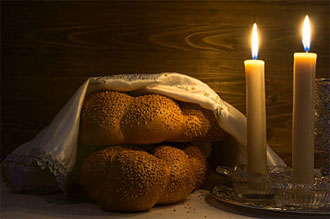
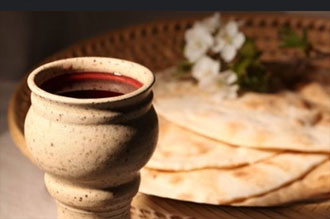
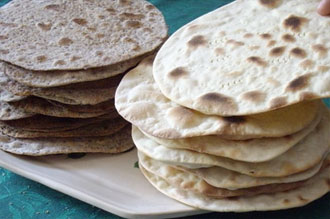
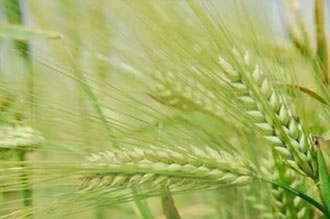

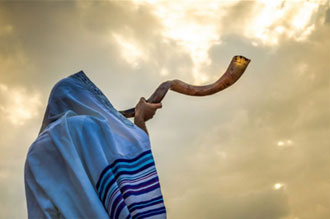


|











